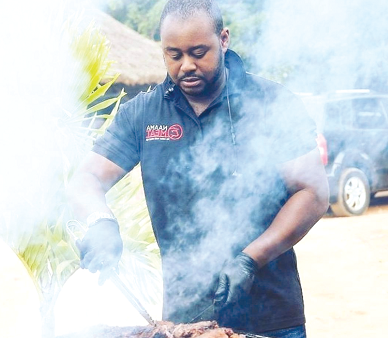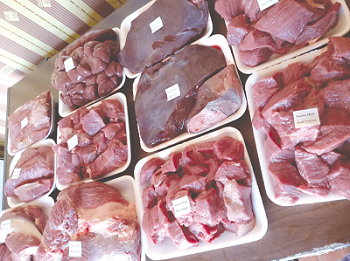
Support livestock sub-sector with subsidies—KIC Business Booster Programme participant
MR Hisham Seidu, the Chief Executive Officer (CEO) of the Seidag Limited, a livestock ranging company, has appealed to the government to expand its flagship agricultural programme, Planting for Food and Jobs to include livestock ranging in order to help grow that sub-sector of agriculture.
While praising the government’s agricultural initiative, he said crop production alone should not be
Advertisement
“It is good to see initiatives such as Planting for Food and Jobs (PFJ) being implemented by the government.
But if the scope were expanded to include livestock farming with the provision of affordable feed, it will help grow the industry,”
The CEO of Seidag Ltd was sharing his experience after participating in the Business Booster Programme (BBP), an initiative from the Kosmos Innovation Centre (KIC).
Livestock in perspective
Last year, the country’s Gross Domestic Product (GDP) figures released by the Ghana Statistical Service (GSS) showed that the livestock
The highest it had contributed to GDP in the past 10 years was 2.1
Since then, the livestock sub-sector has seen its contribution to GDP dwindle consistently to an all-time low figure of 1.1
It is this trend that Seidag Limited is seeking to reverse with the construction of its feedlot that can feed 200 cows.
“The feedlot is a facility where we confine the cattle for special feeding in order to improve their beef quality and for them to gain some weight before they are slaughtered for the market.”

“Seidag also processes cattle on the feedlot which it sends to another subsidiary, Naama, located in Tema
Subsidies
According to
“Provision of affordable feed is crucial to the growth of the industry because
He noted that the stunted growth of the sector had encouraged importation as the local industry had been unable to meet demand.
He argued that changes to the scope of PFJ would simply allow the local market to better compete with imported products.
“So, we expect the state to support us not only with
KIC Business
Booster Programme
The KIC is the flagship social investment programme of oil company Kosmos Energy. The KIC’s
The KIC focuses on training entrepreneurs and supporting start-ups to validate or refine their business models in order to scale up either organically or by attracting investors.
“We

“So with the help of the programme, we now know the next step to take in order to scale-up. It will not only involve capital but also hard work.”
He explained that everything that he had
Recommendations
“The government should also try and emulate what the KIC is doing. It is not always that it needs to invest funds but the technical support is needed to grow smaller firms.
“So the government should find ways to provide cattle farmers for instance with quality affordable feed and improved breeds with the aim of encouraging confined livestock farming.”




